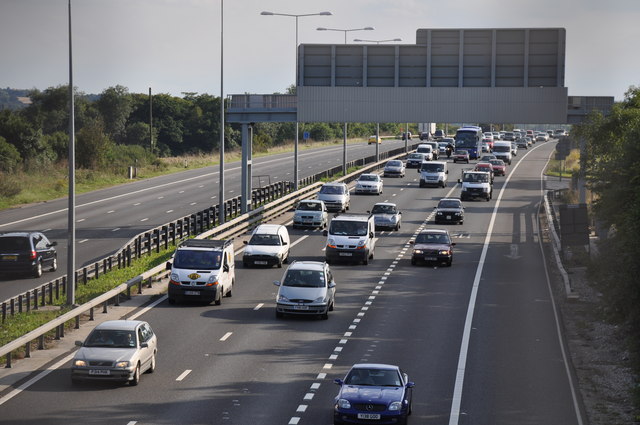 Those that work in the motor trade business have to be particularly careful while on the road because if they are caught speeding or driving dangerously they could lose their licences, void their motor trade insurance policies and even ruin their businesses. However, most motorists are not as careful on the road as motor traders, especially on the motorway where they try and get away with driving over the speed limit.
Those that work in the motor trade business have to be particularly careful while on the road because if they are caught speeding or driving dangerously they could lose their licences, void their motor trade insurance policies and even ruin their businesses. However, most motorists are not as careful on the road as motor traders, especially on the motorway where they try and get away with driving over the speed limit.
This is why the government has recently announced that those who are caught speeding on the motorway can now face a fine of up to ten thousand pounds. Previously, motorists could only be fined between one thousand and four thousand pounds if they were caught speeding, however the government has increased the amount in order to encourage more drivers to stay safe. The government has also increased the amount drivers can be fined if they are caught using a mobile phone behind the wheel or if they are convicted of dangerous driving.
However, even though the new fines are designed to improve road safety, a number of motoring groups have labelled them as ‘draconian’. For instance, Edmund King, president of the Automobile Association (AA), said: “For the vast majority of drivers the prospect of the existing £2,500 fine is a pretty good deterrent against excessive speeding on the motorway. We would not condone excessive speeding in any way but fines have to be proportionate to the offence and one has to question whether increasing the fines four-fold is proportionate, and it probably is not. If we had more cops in cars on the motorway that would be a much more effective deterrent.”
Meanwhile, Rupert Lipton, director of the National Motorists Action Group, said: “This massive increase is disproportionate and draconian. I think it will have a serious chilling effect. We will find motorists will be deterred from going to court where they don’t believe they are guilty of an offence and there is a potential challenge. For general speeding allegations you’re allowed to take a fixed penalty, currently £60 and three penalty points on your licence, or agree to complete a speed awareness course. But if you wish to challenge it you can currently face six points and a £1,000 fine on non-motorway roads or £2,500 on the motorway.
“I think that is enough of a deterrent for people who are thinking about taking a chance and going to court, but raising it four-fold is clearly an over-reaction. The threat and the fear of a disproportionate fine would deter many from trying to seek justice.” Professor Stephen Glaister, director of the RAC Foundation, added: “People who break the law should bear the consequences but this seems such a wholesale change to the system so you have to ask what was going so badly wrong before?
“Ironically we know that speeding offences have declined over recent years and just last week the Department for Transport confirmed that even after taking congestion out of the equation recorded traffic speeds have been dropping for a decade on most types of roads.” However, the justice minister, Jeremy Wright, defended the government’s plans and said: “Financial penalties set at the right level can be an effective way of punishing criminals and deterring them from further offending. Magistrates are the cornerstone of our justice system and these changes will provide them with greater powers to deal with the day-to-day offences that impact their local communities.”
Under the new regulations there will now be a five tiered system which will give lower courts more power when it comes to individuals committing a range of crimes including motoring offences. The lower the tier the lower the fine; for instance unauthorised cycle racing on public highways will land you with a fine of around £800 – £400 more than the previous £200. Speeding on the motorway will now be classed as a level four offence, which means that courts are allowed to issue fines between £2,500 and £10,000.
Crimes that are considered to be in the level five category includes dangerous driving, which magistrates now have the ability to fine an unlimited amount for. This means that lower courts now have the same power as the Crown court when it comes to issuing fines and drivers who break the law can be dealt with in a faster manner.
Photo by Lynda Poulter / CC BY-SA 2.0
